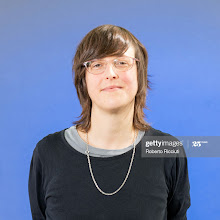Whereas Araeen’s manifesto (inline with the desperate pleas of environmental campaigns such as 10:10) gives a sense that something can be done to avert ‘our impending doom’. There is, however, another concurrent school of thought which encourages us to embrace our fate. Uncivilisation: The Dark Mountain Manifesto was published in 2009 by writers Paul Kingsnorth and Dougald Hine, as a vision of the future of literature in the new form of “uncivilised art” (Kingsnorth & Hine 2009, p.13). It takes the pessimism of beliefs such as those of James Lovelock: that humans are too stupid to prevent climate change (Hickman 2010, p.12) and challenges us to invert these to become a positive creative force:
“We live in a time of social, economic and ecological unravelling. All around us are signs that our whole way of living is already passing into history. We will face this reality honestly and learn how to live with it.” (Kingsnorth & Hine 2009, p.19)
The key is in developing a sense of objectivity about the systems in which we are enmeshed. We are invited to “stand outside the human bubble”, to “tug our attention away from ourselves and to turn it outwards; to uncentre our minds”: essentially to put “civilisation – and us – into perspective” (Kingsnorth & Hine 2009, p.13).
Once we are able to shift our attitude from that of hubris to that of humility, it becomes easier to accept that resources are indeed finite; civilisations do collapse and that species, including our own, become extinct. With this finitude as a certainty, the petty squabbling of the art world and the insignificance of the ‘goals’ we have been striving towards become evident. We can be liberated from our career plans; from the careful crafting of our own personal legacies and can refocus our attentions on the immediacy of the present (Bey 1994), for it is perhaps here where we should learn to find meaning and happiness.
How to Reconcile the Careerist Mentality with Our Impending Doom
By Ellie Harrison
May 2010
Contents
- Preface
- Global Warming Projection
- Setting the Scene
- The Careerist Mentality
- Our Impending Doom
- A Rude Awakening
- Now or Never
- Atomised Art World
- Free Our Minds
- Outside the Bubble
- Plan of Action
- New Moral Code
- Clandestine Insurgence
- Alternative Knowledge
- Practical Solutions
- Multi-Pronged Approach
- A Reconciled Practice
- Our Fully Functional Role
- References
